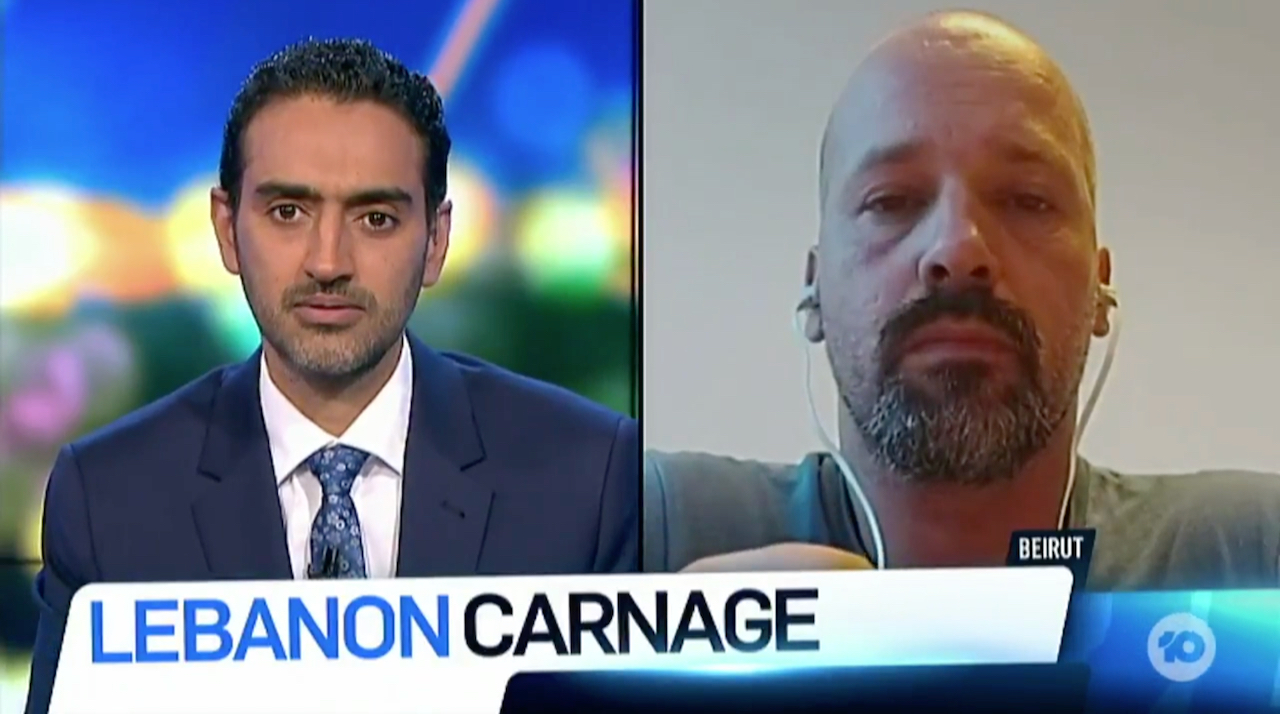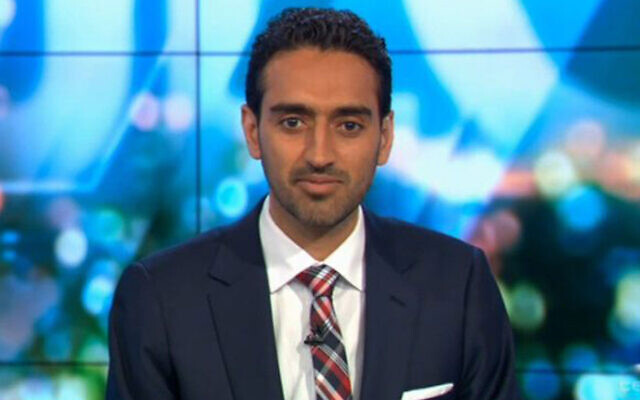The Project slammed for Israel ‘conspiracy theory’
"It was bad journalism, and grossly irresponsible to allow Sousa without contradiction or challenge to stoke baseless suspicion, fear and hatred," said ECAJ co-CEO Peter Wertheim.
“BAD journalism”, “grossly irresponsible” and “a platform for the airing of a baseless conspiracy theory” without contest or challenge.
These are just some of the ways a segment on Network Ten’s The Project last week, which accused Israel of being behind a massive explosion at Beirut’s port that killed more than 200 people, have been described by Australia’s Jewish roof body.
On Monday, the Executive Council of Australian Jewry (ECAJ) lodged a formal complaint with FreeTV Australia about the interview, in which host Waleed Aly asked Beirut-based photographer João Sousa if explanations from Lebanese officials that the explosion was caused by ammonium nitrate were “widely accepted by people there”.
Sousa replied, “No. I would say 99 per cent of the people I’ve spoken with … they all feel that that’s not necessarily the correct explanation.
“People are more likely to believe that this was an attack, a military attack, possibly by Israel, than an accident.”
According to outgoing Lebanese Prime Minister Hassan Diab, the explosion was triggered when a warehouse fire ignited 2750 tons of ammonium nitrate which had been stored at the port for six years without any “preventive measures” to protect it.
Israel was one of the first countries to offer humanitarian aid in the wake of the blast. Senior Hezbollah officials, meanwhile, insisted that neither Hezbollah nor Israel were involved. However, Israel’s Channel 13 reported that “the material that exploded in the port is not new to [Hezbollah Secretary General Hassan] Nasrallah and Hezbollah”.
The morning after the interview went to air, following anger from viewers after The AJN posted a snippet of the exchange on Facebook, The Project deleted the segment from social media, but stopped short of an apology.
“The Project rejects the suggestion there is any evidence the explosion in Beirut was a military attack,” a spokesperson from the program said.
“As our report last night clearly stated, this is a tragic accident resulting from the mishandling of dangerous chemicals.”
ECAJ stated, “As it has turned out, Sousa was utterly wrong not only about the cause of the blast but also about the perceptions of the people in Lebanon. Since the interview went to air, Beirut has been further rocked by massive anti-government demonstrations, with the demonstrators blaming the explosion on corruption and incompetence by their own government, not Israel.”

ECAJ said Sousa “failed to point to any facts or evidence to support this view”, and Aly “failed in his duty as a current affairs interviewer to question Sousa about the basis for his view”.
“It was bad journalism, and grossly irresponsible to allow Sousa without contradiction or challenge to stoke baseless suspicion, fear and hatred in the Australian community,” said ECAJ co-CEO Peter Wertheim.
Responding to the program’s statement, Wertheim said, “This was far too little in the circumstances.
“The Project has an audience of several hundred thousand people, many of whom would not be aware of the spokesperson’s statement.”
He called for Aly to provide “an unqualified, unreserved retraction and apology on-air during the program, and at the earliest opportunity”.
The sentiment was echoed by, among others, Caulfield MP David Southwick and chairman of the Anti-Defamation Commission Dvir Abramovich.
Editorial:
JUST hours after the devastating Beirut blast last week that killed more than 200 people and injured thousands more, Israel was offering its condolences, its hospitals and aid for the country.
“Yesterday Lebanon suffered a major catastrophe. We are ready to offer humanitarian assistance, as human beings to human beings,” Israeli Prime Minister Benjamin Netanyahu said.
Even the IDF tweeted a message of support, noting, “This is the time to transcend conflict.” The tweet was accompanied by a photo of the Israeli and Lebanese flags.
And in a further show of solidarity – somewhat rare given the country’s militant group Hezbollah wants to annihilate Israel – the City Hall in Tel Aviv’s Rabin Square was lit up in the colours of the Lebanese flag.
These are all actions we would expect of the Jewish state, nothing less. And we hope and expect our nightly current affairs programs might reflect this reality as well.
Sadly though, viewers who tuned in to Network Ten’s The Project that night left thinking Israel may in fact have been responsible for the deadly blast.
A Beirut-based photographer told host Waleed Aly, “People are more likely to believe that this was an attack, a military attack, possibly by Israel, than an accident.”
Which people? Why would they accuse Israel when their own government has admitted the explosion was caused by a warehouse fire igniting 2750 tons of ammonium nitrate?
The only explanation João Sousa had was, “Lebanon and Israel are never on good terms, so there’s always this tension going on, and people are always expecting something like this to happen.”
Adding a nail in the coffin, Aly failed in his journalistic duties to question his interviewee’s views.
This was Israel-bashing 101, and a poor excuse for journalism.
The Project has been inundated with angry calls and letters. They deleted the segment from social media but are refusing to apologise.
This is despite the fact that Lebanon itself has not accused Israel of any involvement.
We join with those communal leaders who are calling on the show’s producers to make amends. It’s time to say sorry. That’s the simple project we’re setting The Project.


comments